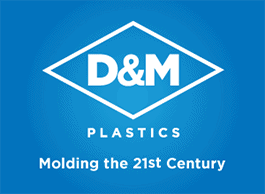Why Is It Important to Have an ISO 13485:2016 Certification as an Injection Molder?
| Blogs | Comments Off on Why Is It Important to Have an ISO 13485:2016 Certification as an Injection Molder?Service providers can produce high-volume injection molded parts for a range of industries and applications. Quality assurance teams use state-of-the-art metrology equipment to ensure precision and accuracy with individual and bulk injection-molded parts.
Manufacturers are responsible for producing quality products that meet all applicable industry standards. Regular third-party audits ensure that even the most complex parts meet industry standards, including ISO 13485:2016 guidelines. Read on to learn more about this certification and its importance in the manufacturing industry.
What is an ISO 13485:2016 Certification?
An ISO 13485:2016 certification outlines the requirements for implementing and maintaining a quality management system (QMS) when producing medical devices and their components. While certifications like ISO 9001 are more widely applicable, ISO 13485 was published exclusively for applications involving medical device products.
Organizations actively involved in the following stages of the lifecycle can seek certification:
- Design and development
- Production
- Storage and distribution
- Installation
- Technical support
Companies meeting ISO 13485 requirements can also service medical devices and offer provisional services like technical support. The certification can also apply to suppliers that provide quality management system-related services and products to various organizations.
Importance of ISO 13485:2016 Certification as an Injection Molder
An ISO 13485 certification allows for unified standards within the medical device industry. By adopting ISO 13485 guidelines, manufacturers commit to a high caliber of security and quality. These guidelines also set businesses up to meet requirements outlined by the EU Medical Device Regulation (MDR), the EU Medical Device Directive (MDD), and various other medical laws.
The ISO Injection Molding Standard ISO 13485 was officially updated in 2016 to reflect the latest industry guidelines. This version outlines requirements for quality management systems related to the manufacturing and servicing of medical devices to ensure customer satisfaction. The ISO 13485 certification applies to all medical equipment manufacturing factories and does not differ based on size.
ISO 13485:2016 Certification Process
To obtain an ISO 13485 certification, organizations will need to thoroughly outline a number of processes and controls:
- Planning the Quality System. Documented quality plans must be in place that outline any intended changes to a quality management system. An experienced ISO consultant can help you visualize plans as Gantt Charts and spreadsheets.
- Meeting Regulatory Requirements. Organizations that manufacture medical devices must comply with the latest regulatory requirements.
- Implementing Design & Process Controls. All implemented design and process controls must be properly documented and effectiveness validated to meet ISO 13485 guidelines.
- Documents, Training, and Records. A quality manual should clearly define the process interactions of the quality system. A process interactions diagram typically contains the following three levels:
- Management processes
- Product realization processes (from design to shipment)
- Support processes
- Management Processes. Regularly assessing and updating quality management systems is key to ensuring safety in any operating environment. Management processes should be reviewed regularly to ensure ongoing compliance.
- Certification & Annual Audits. ISO 13485:2016 requires an audit from industry-specific personnel and a qualified ISO registrar to receive initial certification. The certification is validated annually via a surveillance audit. The process includes a review of all relevant procedures, records, processes, and management systems.
Contact D&M Plastics to Learn More About ISO 13485 Certification Requirements
D&M Plastics is one of the first custom injection molders to receive the ISO 9001 certification, which we maintain along with our ISO 13485 certification. Our ISO certifications cement our reputation as a leading injection molding manufacturer in the nation. With over 50 years of experience producing high-quality components, clients in the medical device industry and beyond continue to rely on us for their injection molding needs.
Contact us for a personalized quote or to receive more information regarding our plastic injection molding services.
Service providers can produce high-volume injection molded parts for a range of industries and applications. Quality assurance teams use state-of-the-art metrology equipment to ensure precision and accuracy with individual and bulk injection-molded parts. Manufacturers are responsible for producing quality products that meet all applicable industry standards. Regular third-party audits ensure that even the most complex […]
